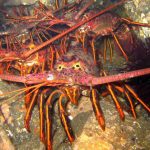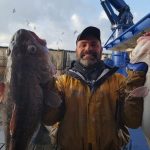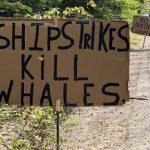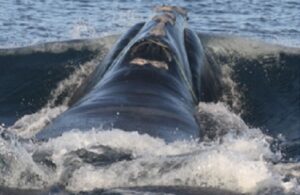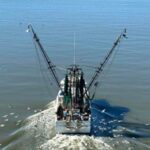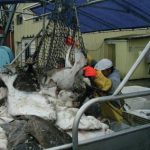Tag Archives: Tasmania

Australia: Coastal wind farms – This Sunday, the people say ‘no’ again
When the first coastal wind farms were announced by Energy Minister Chris Bowen, I thought I was dreaming. Australia has some of the best beaches in the world. People come to this country to see its unspoilt natural beauty. Despite a 42 per cent decline following the lockdowns, tourism remains Australia’s 14th-largest export industry. Along with education, it is one of the most sustainable industries that contributes to our standard of living. Nobody wants to come to Australia to see rotting wind turbines at our beaches. They can visit their own failed renewable energy white elephants at home. To make matters worse, our energy minister is pitching his vibe to elite activists while refusing to listen to ordinary Australians. Today they will gather in the surf near Port Stephens. The protest is called Paddle Out. >>click to read<< 10:21
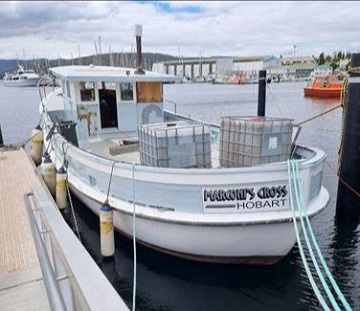
Red Car resto relies on DuFLEX
A classic Sydney trawler that operated for 30 years in Tasmania as Marconi’s Cross out of Hobart is being given a new lease on life by the experts at Red Car Marine in the fortuitously named suburb, Goodwood in Hobart. James Watson runs Red Car Marine and he and his team are meticulously restoring the 14.75-metre timber fishing vessel for its Sydney owners. Built in 1948, the historic vessel is a veteran of tuna fishing, trawling and towing fish pens, before going up for sale. As James explains, “Her new owners have commissioned a total refit, including the wheelhouse, aft lounge, sliding doors and interiors to turn it into a pleasure boat for cruising the Hawkesbury River, and eventually some passage making to Whitsundays.” 3 photos, >click to read< 09:54
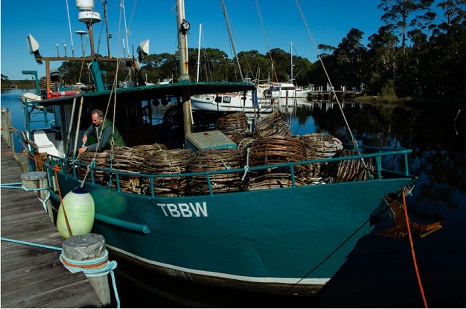
Crayfisherman looks back on life and death at sea on Tasmania’s rugged west coast
Sitting on the deck of the Erin K in peaceful Mill Bay, David “Charlie” Kiely remembers that his mum didn’t want him to be a fisherman on the west coast of Tasmania. Forty years after he began, Mr Kiely is now retiring from crayfishing on one of the wildest and most dangerous coastlines in the world. He has lost friends and fellow fishermen to the ferocious mood swings of the Southern Ocean. But he has also experienced raw, powerful nature and wildly beautiful coastlines that few others ever see. On balance, he wouldn’t change a thing. Photos, Video, >click to read< 07:21
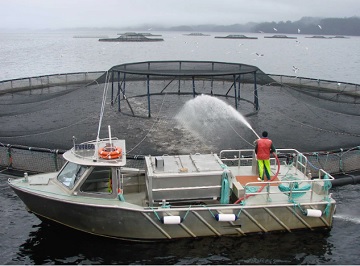
Tassal recommends shareholders accept $1.1 billion takeover bid from Canadian seafood giant Cooke
The last remaining Australian-owned major salmon producer looks set to go to foreign hands, after Canadian aquaculture company Cooke upped its offer for Tassal. Tassal told the Australian Securities Exchange that it has recommended shareholders accept Cooke’s latest $5.23 per share bid, which values the company at $1.1 billion. Cooke has attempted to purchase Tassal for months, lodging three unsuccessful takeover bids, with the latest in June valued at $4.85 per share. The potential acquisition of Tassal follows foreign takeovers of Australia’s other two major salmon companies. New Zealand seafood giant Sealord purchased Petuna in 2020, while Brazilian-owned JBS completed its takeover of Huon Aquaculture last year. >click to read< 10:09
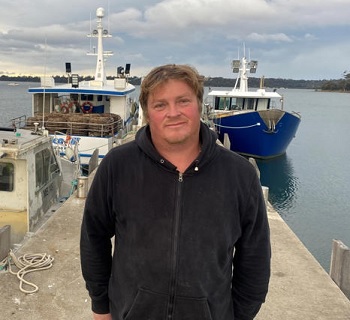
Commercial rock lobster fishers on Tasmania’s east coast are worried about a proposal
Rock lobster fisher Adam Johnson had hoped his children could follow in his footsteps, but a proposed change to how the industry operates has him worried about the future. At the moment, bigger rock lobster boats carrying 60 pots are only able to fish off the west coast. The government is now proposing to expand that, to include the north-west, and north-east. Break O’Day Mayor Mick Tucker is strongly opposed to the change — in the council’s submission to the government he labelled it reactive, ill-advised and inequitable. The former commercial fisherman is worried if the change is made as proposed, the local industry will further contract, ultimately impacting local services and the town’s economy. >click to read< 19:14
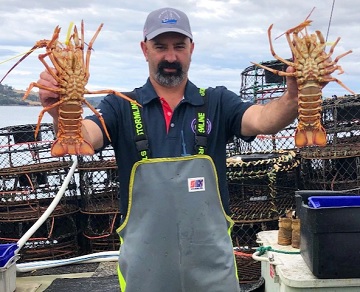
Fishers struggle as lobster ‘nearly as cheap as chocolate’
A dramatic collapse in export markets has flooded Australia with large quantities of cheap lobsters selling for as little as $35 a kilogram. At that price, fishers struggle to break even and processors are not getting enough orders to chew through the oversupply of fish, with one describing the price as “nearly as cheap as chocolate”. “I’m hearing fishermen struggling to maintain deckhands because they’re not earning enough money, fishermen talking about having to get a second job,” Mr Blake said. “It’s been very challenging.” Fishers used to sell lobsters into China for around $100 per kilogram but the industry has been locked out of that market since the outbreak of covid. >click to read< 08:04
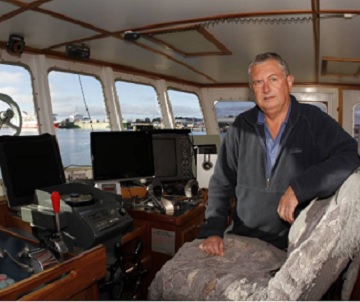
It could have been worse. Commercial fishing boat metres from crash impact
A commercial fisherman says his family’s vessel, the Dell Richey II, was fortunate not to get caught up in the crash involving cement carrier Goliath and two tugboats at the Devonport wharf. Mr Richey said his son John the skipper of the Dell Richey II, was on board when it happened, along with some of the crew members. “When he saw what was happening, he started the engine. The crew on board got the lines off. They managed to get the boat away from the wharf before getting tangled up in the wreckage,” he said. Mr Richey said it could have been even worse if it happened 24-hours earlier. >click to read< 08:54
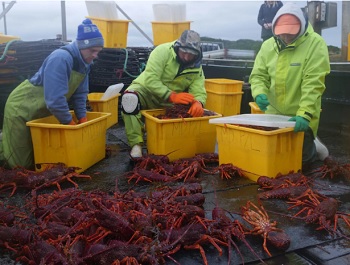
Tasmania: King Island lobster fishers fear seismic testing plans could damage the local industry
Wayne Coombe casts his mind back about 15 years when seismic testing was conducted off the island’s south west. “There was an abundance of lobster there and after that survey, it was almost like they died overnight of old age,” he said. “Lobsters just disappeared, they didn’t crawl, they were not there.” Gas giant ConocoPhillips is hoping to conduct seismic testing in mid-August at the Otway Basin to the west of King Island to assess its natural gas reservoirs. >click to read< 09:08
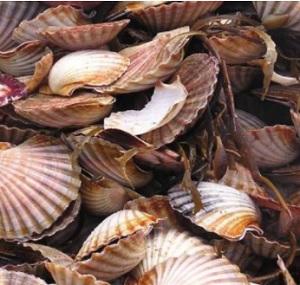
Individual transferable quota system hurting Tasmania’s fishing fleets
“ITQs have caused a decrease in owner operators and a decrease in active vessels in the fleet,, “Separation of ITQ ownership from the fishing sector has created a whole range of unintended consequences, which have ultimately seen the flow of majority of profits to investors, not the fishing fleet.” King Island Council deputy general manager Kate Mauric told the committee some fishermen felt disadvantaged due to contract management from investors, though this was not as pronounced on the island as elsewhere. >click to read< 10:54
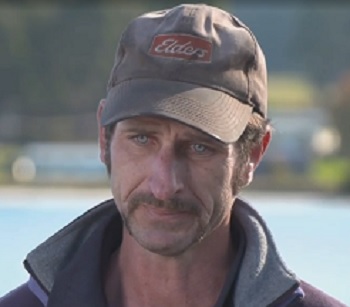
A “heavy mental impact” – Tasmania’s rock lobster industry suffers in trade war
Beijing cancelled the China Australia strategic economic dialogue this week, effectively ending trade relations between the two countries. For Tasmania’s rock lobster fishers this trade war is real and destroying their livelihoods and businesses in less than 12 months. Lobster fisher Kane Ebel said there was a “heavy mental impact” to the trade war. “When you get out of bed in the morning and you’ve got big debts on your boat and your house and effectively can’t go to work, it’s got to take a toll,” he told Sky News. >click to watch< 18:48
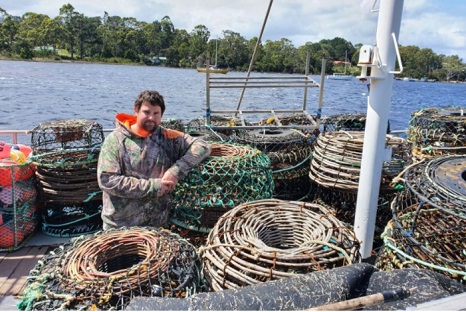
Australia: Cheap lobsters on Christmas tables as prices plummet due to China import ban
Commercial fishers operating in Victoria, Tasmania, and South Australia are supplying record volumes to the domestic market after China’s ban on Australian live lobster imports. With the crustaceans removed from restaurants and markets in China, (you know the drill),,,Tasmanian commercial fisher Jason Hart this week sold his catch directly to the public at the Strahan wharf. “I’ve never had to worry about selling them from the wharf before,” Mr Hart said. “Even when our markets have been bad you can still on-sell the fish. But I’ve never seen it like this,,, >click to read< 13:48
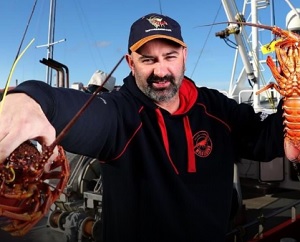
“Aussie Lobster Men”: Tasmania’s Aussie Lobster Man!
Brendan “Squizzy” Taylor and the boys portray the real lives of a crew on board a commercial fishing vessel here in Tassie. Filming was originally due to finish back in March, but like most things the pandemic hit and filming was delayed. The pandemic has transformed the lobster industry dramatically, Squizzy revealed the price of lobster had dropped significantly in the past few months. “This has been the most stressful time of my life in the family business. The industry got turned on its head overnight” At the height of the COVID-19 pandemic, the only place he was able to sell lobsters was straight off the boat in Margate to locals. >click to read< 11:09
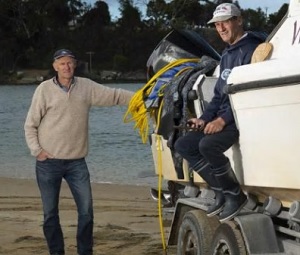
Coronavirus: Seafood industry falls victim to the virus
Abalone fisheries, reliant on China for up to 90 per cent of sales, have been paralysed by the sudden drop in demand with Tasmania’s entire fleet of up to 100 abalone dive boats “ground to a halt” for the past month. Lobster was one of the first sectors to suffer as the result of China’s quarantine lockdowns, forcing the sale of export catches on the local market at discounted prices. The crisis has since broadened, affecting scale fisheries such as banded morwong and wrasse, and all processors reliant on China exports or live fish trade to deserted Chinatowns in Sydney, Melbourne and Brisbane. >click to read< 09:16
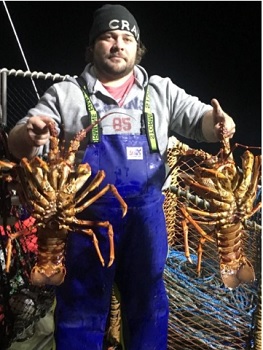
Lobster fisherman hopes to survive impact of coronavirus, rising costs
In Tasmania’s north-west, fisherman Scott Inkson is one of the lucky ones who may survive the impact of the coronavirus on the lobster industry. As COVID-19, as it is now known, continues to prevent live fish exports to China — his main market — he has decided to set up shop off his boat in Wynyard and give the community a cheap treat., “After 90 minutes on the wharf we completely sold out., King Island fisherman Mark Smith, 28, has struggled to sell his lobsters this season. >click to read< 23:15
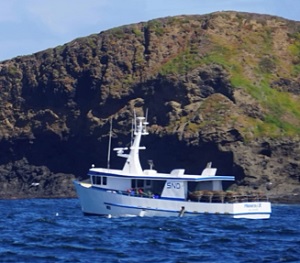
Matthew Morgan: A Change, and my presentation to the Tasmanian Legislative Council Inquiry into the Tasmanian Salmon (Finfish) industry
My name is Matthew Morgan, and I am Skipper of a Commercial Southern Rock Lobster Boat, F/V Monica is 57 feet long X 20 feet Beam x8 feet Draught. Her and I are in the Top 10% of this Fishery in Tasmania Originally my group on facebook was called Wild Fishers Against Salmon (Finfish) Farming. We were asked to change that from Against, to FOR Sustainable by a former government advisor that the former name Wild Fishers Against, would make it unlikely we would gain our access to the Minister. We Complied. >click to read< 10:19
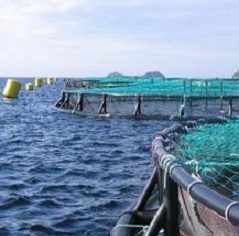
Fish farms not worth damage they’ll do
I have lived in Tiverton my whole life. I am a lobster fisher. I am very concerned about the effect that fish pens proposed by Cermaq will have on St. Mary’s Bay. I have environmental, economic and community concerns. I have been told approximately 25 acres of prime lobster bottom is being taken away from us by each of these salmon pens. We don’t have a groundfish fishery anymore. Lobsters are what sustain our way of life. These pens are proposed to go where I have always caught the majority of my lobster, and that could displace me from my job, by Sheldon Dixon, >click to read< 11:10
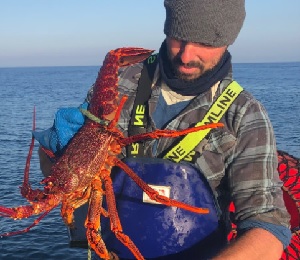
‘Lobsters overboard’ as China bans live seafood trade over coronavirus fears
Australia’s seafood industry has been thrown into crisis by the ban, with local fishermen considering a plan to return thousands of lobsters to the open waters. The export industry has ground to a halt in Victoria, Western Australia, South Australia and Tasmania as China usually imports about 90 to 95 per cent of locally-grown lobsters. >click to read< 16:47
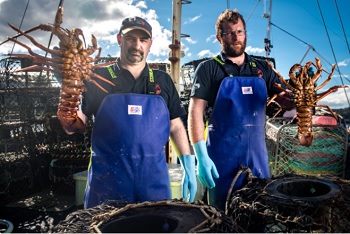
The ups and downs of being a Tasmanian lobster man
Lobster man Brendan “Squizzy” Taylor happily admits to loving his job, but the overheads are huge, and when he’s under the financial hammer and his pots start coming up empty – or are full of lobster killed or disfigured by octopus – it’s not a lot of fun. But at least Taylor gets to enjoy grilling up some fresh octopus for himself, right? “No,” he says, without a trace of his usual humour. “I hate ’em.,, “I remember leaving school, jumping on a cray boat, going around the west coast for seven or eight days,” he says. “I was seasick for three days non-stop, had to work 18 hours a day and I remember thinking, ‘I can’t do this. This is way too hard. I can’t do it physically or mentally.’ >photo’s, >click to read< 11:15
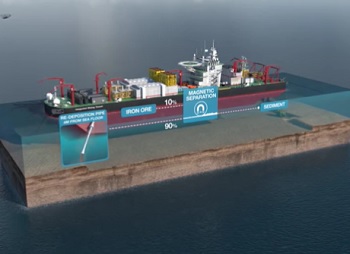
Appeal begins over seabed mining for ironsands off Taranaki coast
An attempt to restore consent for seabed mining of ironsands off the Taranaki coast, has begun in the Court of Appeal. But the appeal by Trans-Tasman Resources is fiercely opposed by environmental and fishing groups, and local iwi, some of them with their own cross-appeals before the court in a three-day hearing that began on Tuesday. In the High Court in 2018 a judge found the original consent may have adopted a wrong management tool, in an area that legally had to be protected from pollution by regulating or prohibiting the discharge of harmful substances. >click to read<
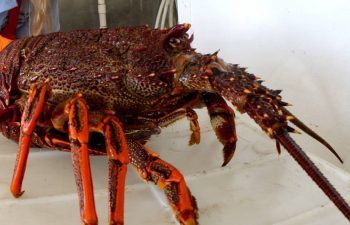
Tasmanian fishers star in new documentary series Aussie Lobster Men
A television series about rock lobster fishers working in the oceans surrounding Tasmania will debut in 2019. The producers of Aussie Lobster Men recently finished filming six lobster boats and their crews working at sea. Minster for the Arts Elise Archer said the documentary series explored the “real-life dramas” of fishers willing to “risk it all in search of one of the world’s most prized seafood delicacy”. >click to read<12:37
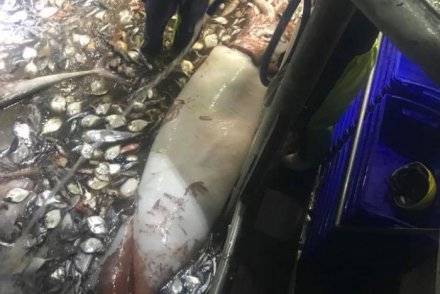
Giant squid potentially worth a fortune tossed overboard
A fishing crew off the west coast of Tasmania potentially throws away a fortune after tossing a giant squid close to three metres long back into the sea. As far as bycatch goes, this one was a whopper — a giant squid hauled in by the crew of the Empress Pearl off the west coast of Tasmania. The South East Trawl Fishing Association reported the squid was estimated to be close to three metres long and weighed up to 100 kilograms. According to the association, not only was the squid enormous, it was also potentially worth a lot of money. >click to read<11:00
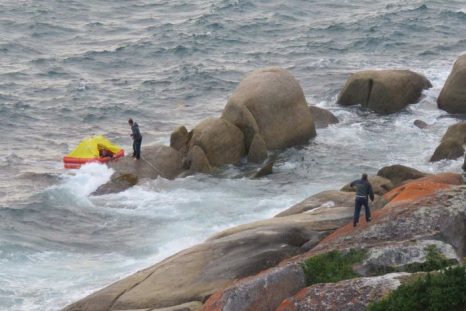
Father and son tell of ‘ferocious’ boat fire they were lucky to survive off northern Tasmania
A Tasmanian father and son have told of how they were lucky to escape a “ferocious” fire on board a commercial fishing boat and how their bad luck did not end when they set themselves loose in a life raft. Warwick Treloggen, 44, and his son Noah, 11, were at sea with two deckhands on Monday evening when the Japara caught fire. Mr Treloggen said events unfolded quickly. “It engulfed the boat, it started off in the engine room somewhere and came up into the galley and by the time I tried to sort it out it was too ferocious to do anything,” he said. click here to read the story 07:54
Tasmanian fishermen fed up with seal relocation into other fishing grounds
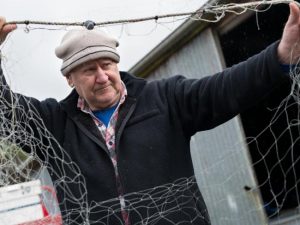 The relocation of problem seals from fish farms to the state’s North-West is causing anger among commercial fishers, who say their nets are being plundered by increasingly aggressive seals and their catches are significantly down. The transporting of seals away from salmon farms began in the 1990s as a temporary way of providing respite until better pen security measures were introduced. But almost 30 years later, a frustrated band of small mesh net fishermen say they have had enough and it is time for the State Government to stop rogue seals being moved away from pens and into other fishing grounds. “Relocating hungry seals from one enterprise to another is akin to moving a problem wild dog from one sheep farm to another.” click here to read the story 08:09
The relocation of problem seals from fish farms to the state’s North-West is causing anger among commercial fishers, who say their nets are being plundered by increasingly aggressive seals and their catches are significantly down. The transporting of seals away from salmon farms began in the 1990s as a temporary way of providing respite until better pen security measures were introduced. But almost 30 years later, a frustrated band of small mesh net fishermen say they have had enough and it is time for the State Government to stop rogue seals being moved away from pens and into other fishing grounds. “Relocating hungry seals from one enterprise to another is akin to moving a problem wild dog from one sheep farm to another.” click here to read the story 08:09
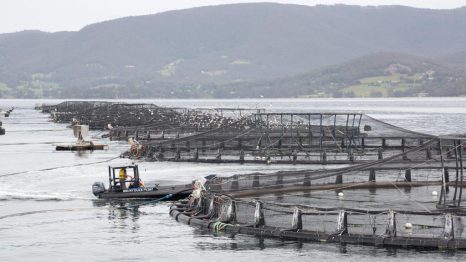
Meanwhile, in Tasmania – Drag fish farm regulation into 21st century
Sea based fish farms dump tonnes of faeces into the water. Think of them as a large toilet that does not flush. I cannot think of an industry in Tasmania other than aquaculture that is allowed to dump an unlimited amount of pollution in our waterways. Not only is there no limit on the amount of faeces salmon farms can dump in coastal waters, Tasmania also lacks science-based regulations to determine which parts of our coastline are suitable for salmon farms. International research shows that if you put fish farms in bays and harbours, where the water is shallow and current speed is low, fish faeces accumulates under cages, killing everything below them. Nitrogen discharged into the water column creates risk of harmful algal blooms, like the types we have seen worsening with increased salmon farms in the Huon and D’Entrecasteaux Channel. Other countries have responded to this research by offering incentives to move farming onshore. Read the story here 12:46






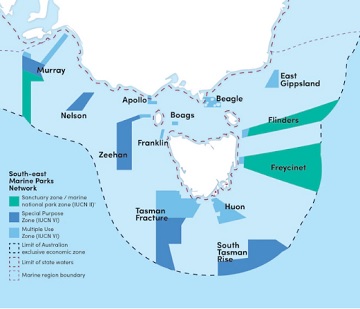
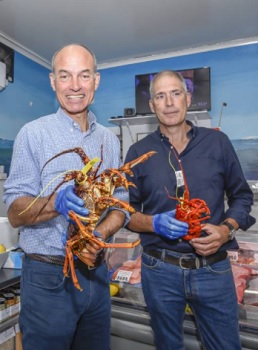
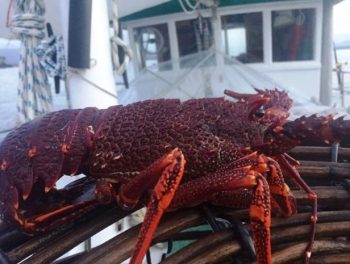
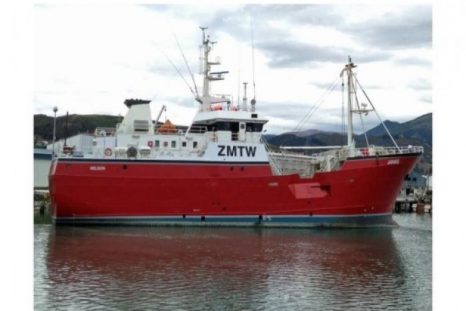


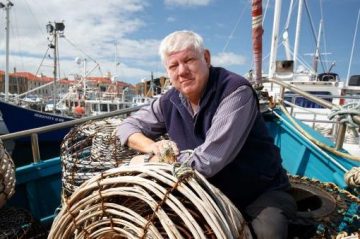 Tasmania’s rock lobster fishermen are a hardy bunch, weathering everything from wild storms to toxic algal blooms, but they have been blindsided by a wave of costly red tape. Third- and fourth-generation rock lobster fishermen who have built an $85 million-a-year trade, mostly via exports to Asia, say new regulations at both state and federal levels threaten chaos. Changes to state regulations proposed from March next year will force rock lobster fishermen to unload their catch in the same area it is caught. While designed to prevent fishermen taking extra lobsters from capped catch areas on their journey home, fishermen say the rule will force them to unload hundreds of kilometres away from their home ports and buyers. Like other fishing industries, they also face massive hikes — up to 116 per cent — in marine safety compliance fees, due to a federal takeover of the role by the Australian Maritime Safety Authority. They believed the state change was a lazy means of making policing easier for fisheries management. “We are not criminals and we shouldn’t be treated like criminals,” said Mr Parker’s brother and fellow rock lobster fisherman, John Parker. A submission by the Tasmanian Rock Lobster Fisherman’s Association describes the state changes as “overly bureaucratic, burdensome and punitive”, as well as unjustified, given there was no evidence of a compliance problem.
Tasmania’s rock lobster fishermen are a hardy bunch, weathering everything from wild storms to toxic algal blooms, but they have been blindsided by a wave of costly red tape. Third- and fourth-generation rock lobster fishermen who have built an $85 million-a-year trade, mostly via exports to Asia, say new regulations at both state and federal levels threaten chaos. Changes to state regulations proposed from March next year will force rock lobster fishermen to unload their catch in the same area it is caught. While designed to prevent fishermen taking extra lobsters from capped catch areas on their journey home, fishermen say the rule will force them to unload hundreds of kilometres away from their home ports and buyers. Like other fishing industries, they also face massive hikes — up to 116 per cent — in marine safety compliance fees, due to a federal takeover of the role by the Australian Maritime Safety Authority. They believed the state change was a lazy means of making policing easier for fisheries management. “We are not criminals and we shouldn’t be treated like criminals,” said Mr Parker’s brother and fellow rock lobster fisherman, John Parker. A submission by the Tasmanian Rock Lobster Fisherman’s Association describes the state changes as “overly bureaucratic, burdensome and punitive”, as well as unjustified, given there was no evidence of a compliance problem. 


























